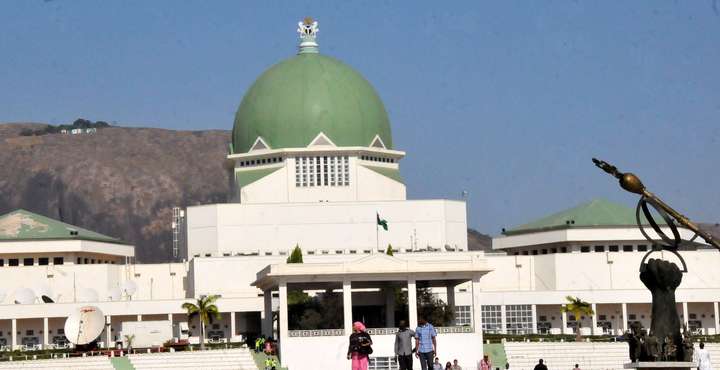NASS Leadership: Tinubu Meets Opposition Lawmakers-elect Monday
AS the National Assembly leadership tussle intensifies, the President, Bola Tinubu, will on Monday meet lawmakers-elect of the National Assembly from opposition parties.
Opposition Senators-elect and House of Representatives members-elect from the Peoples Democratic Party, Labour Party and the New Nigeria Peoples Party, among other opposition parties are expected to meet with President Tinubu at the State House in Abuja between 3pm and 5pm.
898.7K
The President’s notice of invitation to the lawmakers-elect, which was obtained on Saturday, was signed by the Permanent Secretary, State House, Tijani Umar, on behalf of the Chief of Staff to the President, Femi Gbajabiamila.
While the opposition senators-elect will meet with Tinubu by 3pm, opposition House of Representatives members-elect will gather at the same venue to discuss with the President by 5pm.
Though the notice of invitation did not state the agenda of the meeting, it was gathered that the leadership of the 10th National Assembly would be discussed.
The invitation, which was dated June 2, 2023, and addressed to the Clerk of the National Assembly, read, “I write to inform you that President Bola Ahmed Tinubu will hold a meeting with members of the opposition Senators-elect and opposition House of Representatives members-elect in the State House Conference Centre, Presidential Villa, Abuja on Monday, 5th June, 2023 at 1500 hours and 1700 hours respectively.
“In this regard, you are kindly requested to inform all concerned members to attend and forward their list early enough for security clearance. Please, accept the assurances of the President’s highest consideration.”
Recall that the decision of the APC to zone the 10th Assembly leadership had sparked serious controversy.
The National Working Committee of the All Progressives Congress had on May 8, 2023, released the zoning formula for the leadership of the 10th National Assembly, picking Godswill Akpabio (Akwa-Ibom/South-South) President of the Senate; Jibrin Barau (Kano/North-West) for Deputy President of the Senate; Tajudeen Abbas (Kaduna/North-West) for Speaker; and Benjamin Kalu (Abia/South-East) for Deputy Speaker.
Several aspirants for leadership positions in the Senate and the House have, however, kicked against the APC leadership zoning plan, vowing to go ahead and contest against the party’s choice candidates.
The APC candidates and the G-7, a group of aspirants aggrieved with the leadership zoning plan of the ruling party, are banking on the votes of the newly elected members who are far more than the returning members and members-elect in the opposition parties who collectively have more numbers than the ruling party.
However, the PDP, LP and the NNPP have cautioned lawmakers elected on their platforms against yielding to the whims and caprices of the executive over the 10th National Assembly leadership tussle.
The opposition maintained that though there was nothing wrong in attending the meeting called by President Tinubu, its members must ward off undue interference by the executive in matters concerning the legislature.
Speaking on Tinubu’s invitation, the NNPP spokesman, Agbo Major, said the opposition lawmakers-elect should operate without the interference of the executive.
Major maintained that the lawmakers must always ensure that the principle of separation of power should be embraced by the three arms of government in every situation in the interest of the country.
He, however, said the NNPP would not stand in the way of its members-elect if the President called them to a meeting.
He added that the NNPP might not be so nice to President Tinubu if the purpose of the meeting was linked with the tussle for the leadership of the 10th National Assembly.
“In any case, if the meeting is connected to the choice of National Assembly leadership, then the party will take a different position as we believe in the independence of the legislative arm of government which ideally should operate without interference from the executive arm in conformity with the principles of separation of power.
“As party loyalists, our elected members will return to brief the party after which appropriate decisions would be taken in the interest of the suffering masses,” he added.





